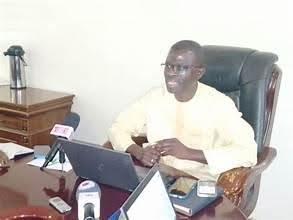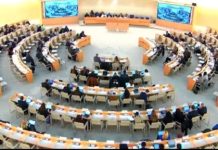By Kebba AF Touray
The Gambia’s Petroleum Minister, Nani Juwara has said that the Gambia currently owes Senelec CFA10 Billion (approximately One Hundred and Twenty Million Dalasi) worth of energy distribution.
The Minister made this disclosure on Wednesday 11th September 2024, while responding to questions put to him by the country’s lawmakers.
Member for Janjanbureh, Hon. Omar Jammeh, asked the Minister to update the assembly on the contract or agreement between NAWEC and Senelec, regarding the distribution of energy, including the terms and conditions of the contract, the amount of money involved in the agreement, how much was paid and the outstanding balance.
Petroleum Minister Juwara explained that the contract between Senelec and NAWEC is not a conventional but rather a consumption-based agreement, with a credit period of 30 days.
“The bulk of the monthly purchase is 50 megawatts facility at the high voltage level. The amount paid and outstanding balance depends on the energy received. However, as we speak we owe three months’ invoices, and that is May, June, and July 2024, amounting to over 10 billion CFA, due to NAWEC’s current cash inflow situation,” he said.
Hon. Jammeh further asked to state if the agreement is the right approach instead of helping to upgrade NAWEC as an institution, Minister Juawara said that they are part of a regional body, and looking at their membership in the OMVG.
The objective, he said, is to put up infrastructures that countries can share, and “this is part of the arrangement that we are also making with Senelec and the rest of the West African countries”.
He added, “The Gambia could one day be exporting energy, for some of those countries that we are currently importing from, and that is why we are going to have a regional project in the country which is going to be a 150-megawatt solar plant to enable us to meet our energy requirements locally, and also be able to export to other countries that are also in need”.
He said that they want to their dependence on fossil fuels that are not cheap and they will also continue to pursue their regional engagements, “to make sure we get the least cost for our people”.
Member for Foni Kansala, Hon. Almameh Gibba asked the Petroleum Minister to update the assembly about why the public was not informed about the agreement with BP at the onset.
He also asked the Minister to state that henceforth, ensure that all future oil exploration activities, including the status of other offshore blocks (A2, A3, A4, etc) are communicated transparently to the public.
Petroleum Minister Juwara said that per section 29 of the Petroleum Exploration Development and Production Act 2004, the Minister responsible for petroleum is mandated to grant licenses for the conduct of exploration, development, and exploitation of oil and gas.
He said, “Following the licenses row, the Ministry made a press release updating the general public on the results of the evaluation and the listed ten companies that qualified on the 18th of April 2018”.
He said when British Petroleum (BP)was granted a license, publications were made in local newspapers, and a press statement of BP’s exit, was made by the Government’s Spokesperson.
He noted that the license agreement which was informed by the said act, is the key document that defines the terms and conditions of licence agreement.
“The BP Agreement was published in the Gazatte as a public notice on Gazatte number 20 of 27th March 2020 (GN 59/2020). Another license row was announced at the Africa Oil Week in Cape Town in 2021 for A Block which was also announced in the local newspapers for the information of the public,” he said.
He added that the launch was also published in the Gazette No.55 vol. 138 of 8th December 2021 (GN 185/2021).



















